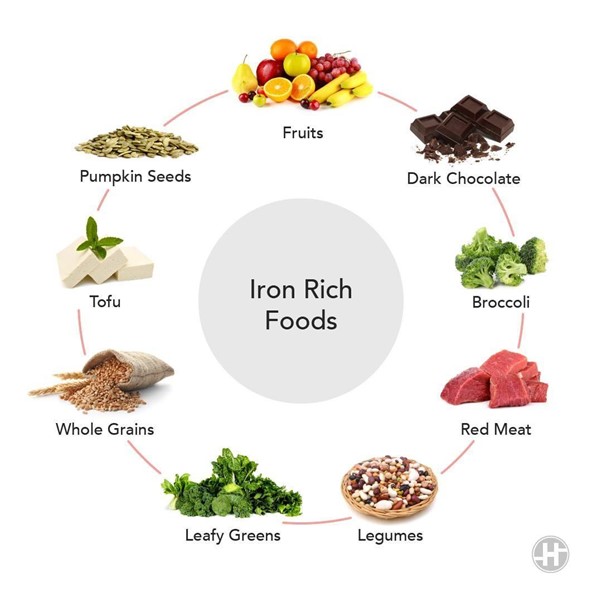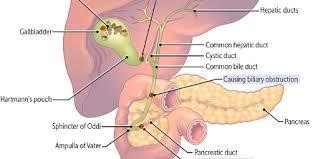A young adult client with a history of iron deficiency anaemia has a haemoglobin of 10.5 g/dL (6.52 mmol/L). Which food choice should the nurse recommend to this client?
Reference Range
Haemoglobin (Hgb) [Reference Range: Male: 14 to 18 g/dL or 8.7 to 11.2 mmol/L]
Broccoli.
Carrots.
Cheddar cheese.
Whole milk.
The Correct Answer is A
Choice A
Broccoli is appropriate recommendation. Given the client's history of iron deficiency anaemia and the current haemoglobin level below the reference range, it's important to recommend foods that are good sources of iron. Among the options provided, broccoli is the most suitable choice. Iron from plant-based sources (non-heme iron) might be less easily absorbed than iron from animal sources (heme iron), but combining them with foods high in vitamin C can enhance iron absorption. Broccoli is a vegetable that contains both iron and vitamin C, making it a favourable choice to support the client's iron intake and help address the anaemia.
Choice B
Carrots are inappropriate. While carrots are a nutritious vegetable, they are not particularly high in iron.
Choice C
Cheddar cheese is inappropriate. Dairy products like cheddar cheese are not significant sources of iron.
Choice D
Whole milk is inappropriate. Whole milk is not a significant source of iron either. Additionally, calcium in milk might hinder iron absorption if consumed together.

Nursing Test Bank
Naxlex Comprehensive Predictor Exams
Related Questions
Correct Answer is B
Explanation
Choice A
Advising the client that too much fruit can irritate the colon is not the right choice. While it's true that excessive consumption of certain fruits can cause gastrointestinal discomfort, this information is not directly related to celiac disease or the selected meal.
Choice B
Informing the client that oatmeal contains gluten is the right choice. Celiac disease is an autoimmune disorder in which consuming gluten, a protein found in wheat, rye, and barley, triggers an immune response that damages the small intestine. Oatmeal itself is naturally gluten-free, but it is often processed in facilities that also process gluten-containing grains, which can lead to cross-contamination. Therefore, it's important for individuals with celiac disease to choose certified gluten-free oats to avoid adverse reactions.
Choice C
Commending the client for selecting fat-free milk is not the best choice. While choosing a healthier milk option is beneficial for overall health, it is not the most important action in this situation, considering the client's celiac disease.
Choice D reason;
Encouraging the client to choose decaffeinated coffee is not the right choice. The choice of caffeinated or decaffeinated coffee is a matter of preference and is not directly related to celiac disease or the potential for gluten exposure from the oatmeal.
Correct Answer is C
Explanation
Choice A
Beef broth should not be omitted. Generally, clear broths like beef broth are lower in fat and may be a better choice for someone with cholelithiasis compared to creamy or fatty foods.
Choice B
Ketchup should not be omitted. Ketchup is not typically high in fat and may not be a significant concern for someone with cholelithiasis.
Choice C
Ice cream should be omitted. Cholelithiasis refers to the presence of gallstones in the gallbladder. Gallstones can form from substances in the bile, and certain foods can trigger symptoms in individuals with gallbladder issues. One of the common triggers is high-fat foods, which can cause the gallbladder to contract and potentially lead to pain or discomfort.
Choice D
Bread should not be omitted. While bread contains some fat, it's not as high in fat as ice cream. The focus for individuals with cholelithiasis is often on high-fat foods rather than moderate-fat foods like bread.

Whether you are a student looking to ace your exams or a practicing nurse seeking to enhance your expertise , our nursing education contents will empower you with the confidence and competence to make a difference in the lives of patients and become a respected leader in the healthcare field.
Visit Naxlex, invest in your future and unlock endless possibilities with our unparalleled nursing education contents today
Report Wrong Answer on the Current Question
Do you disagree with the answer? If yes, what is your expected answer? Explain.
Kindly be descriptive with the issue you are facing.
